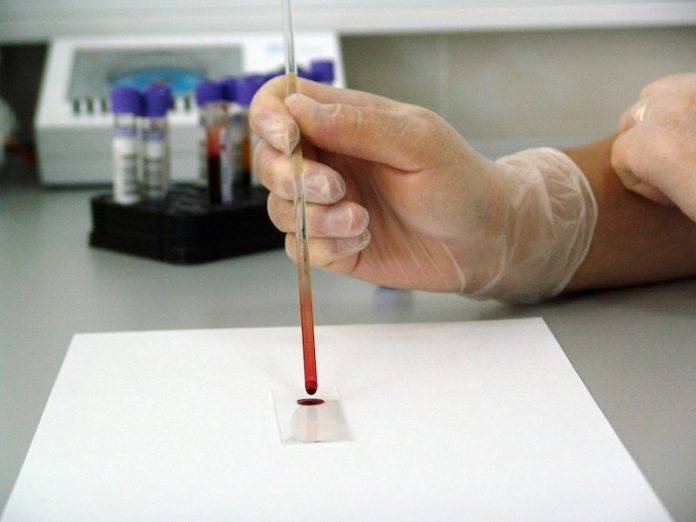
In a new study, researchers have developed a new blood test that can detect seven different types of cancer.
This simple blood test can spot unique patterns in the fragmentation of DNA shed from cancer cells and circulating in the bloodstream.
The test is called DELFI (DNA evaluation of fragments for early interception).
The research was conducted by a team from the Johns Hopkins Kimmel Cancer Center.
In the study, the team examined 208 patients with various stages of breast, colorectal, lung, ovarian, pancreatic, gastric or bile duct cancers in the U.S., Denmark, and the Netherlands.
They found the blood test could accurately detect the presence of cancer DNA in 57% to more than 99% of blood samples.
DELFI also performed well in tests of blood samples from 215 healthy individuals, falsely identifying cancer in just four cases.
The test uses machine learning, a type of artificial intelligence (AI), to identify abnormal patterns of DNA fragments in the blood of patients with cancer.
By studying these patterns, the team said they could identify the cancers’ tissue of origin in up to 75% of cases.
The team hopes their new test could be used to screen cancer in people at high risks in the future.
Because the test is easy to administer and employs simple and inexpensive laboratory methods, the team expects that the test could ultimately be more cost-effective than other cancer screening tests.
The test can be used to predict cancer risk by comparing the genome-wide fragmentation pattern from an individual with reference populations.
It can also indicate the source of cancer, such as from the breast, colon or lung.
But the researchers warn that the test’s potential must be further validated in additional studies.
The lead author of the study is Victor E. Velculescu, M.D., Ph.D., professor of oncology.
The study is published in Nature.
Copyright © 2019 Knowridge Science Report. All rights reserved.



